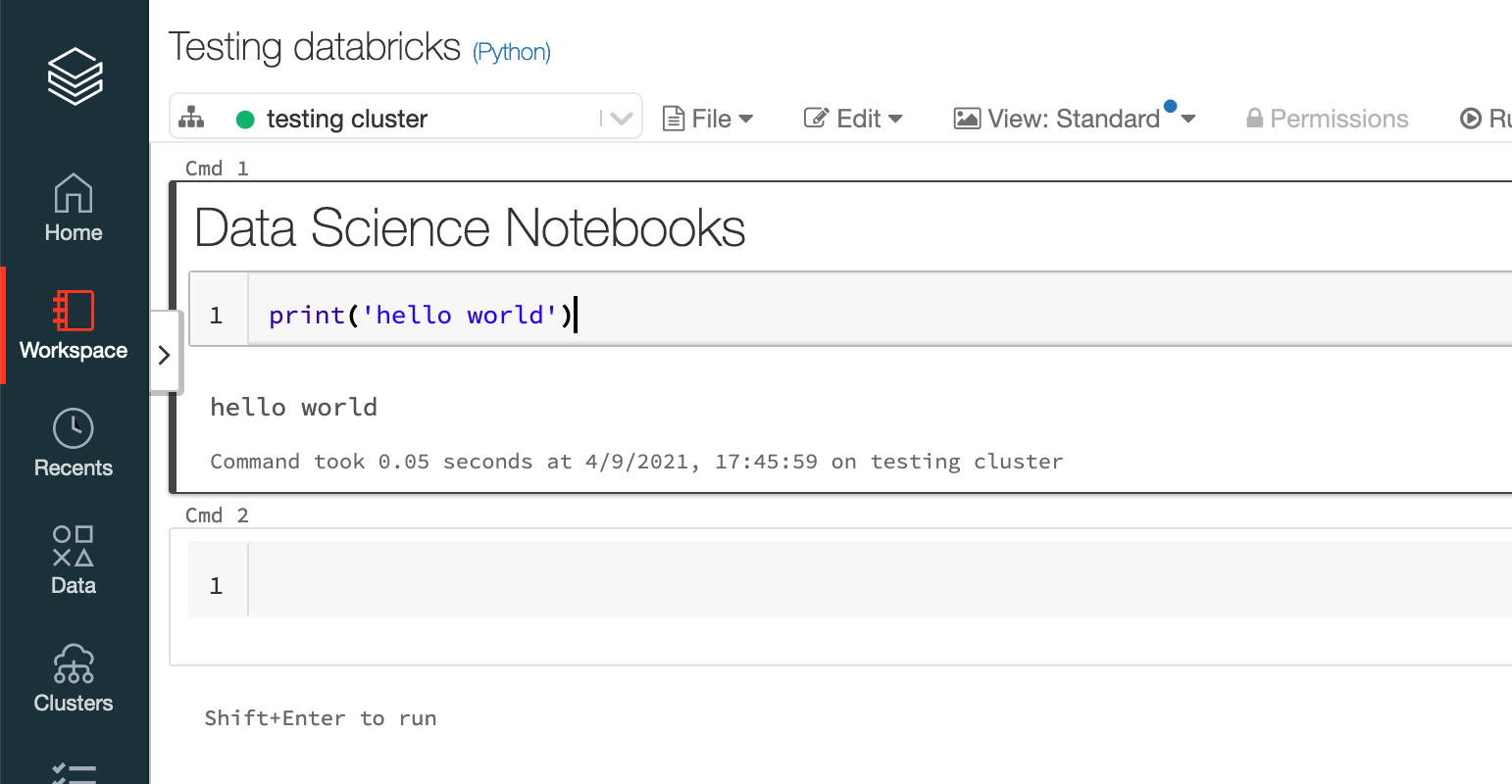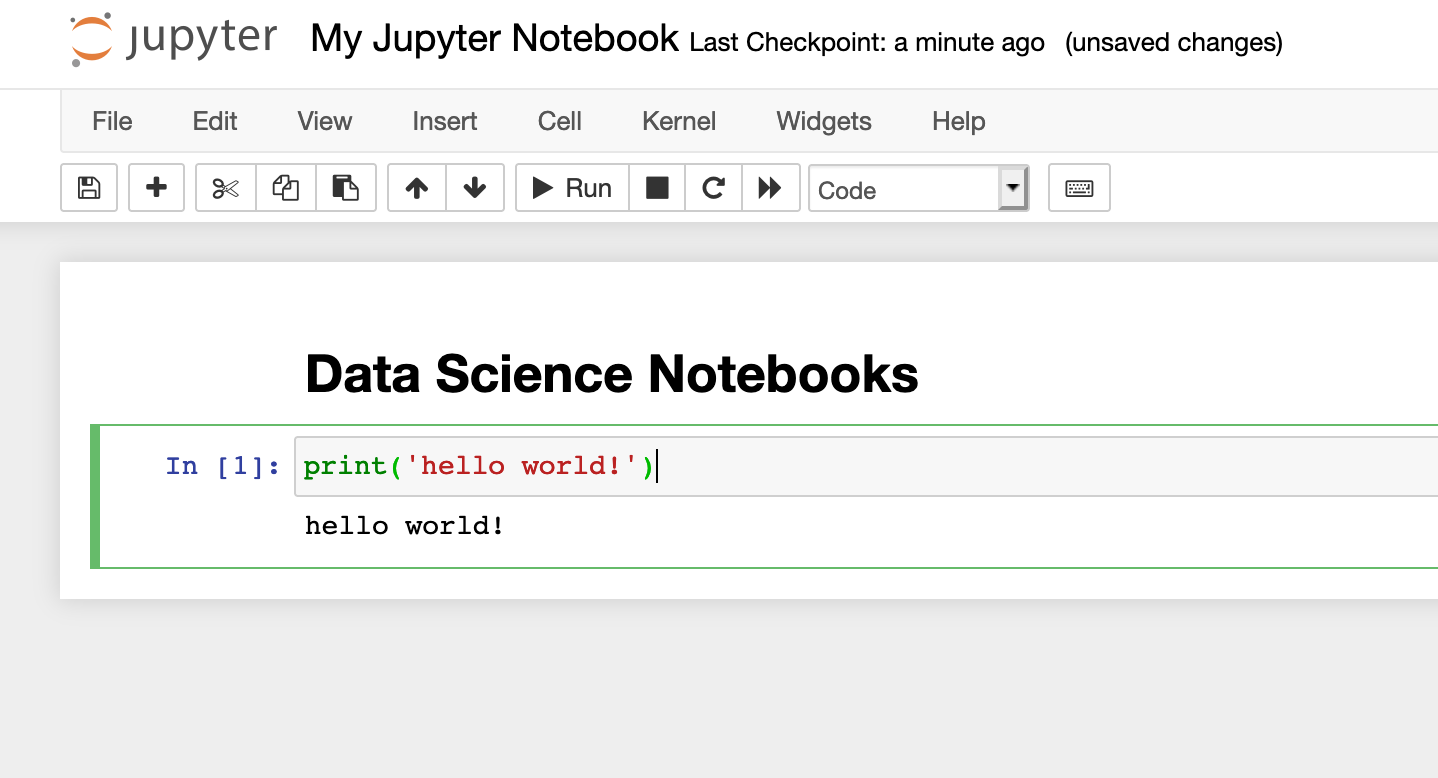

Databricks Notebooks
Collaborate across engineering, data science, and machine learning teams with support for multiple languages, built-in data visualizations, automatic versioning, and operationalization with jobs.

Comparing two data science notebooks.





